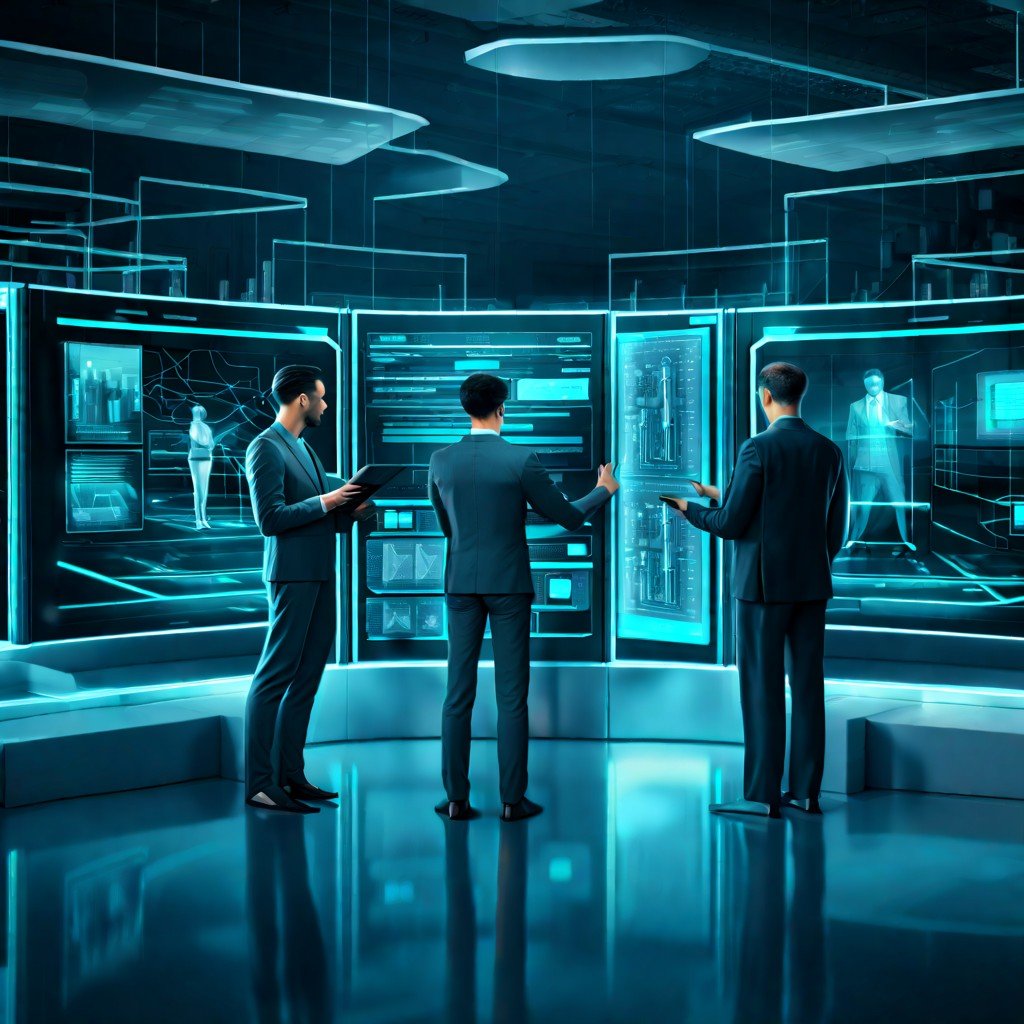
Quantum Momentum in Washington: Why Now is the Time for Quantum Tech Companies to Engage with the U.S. Government
Since 2018, federal quantum funding has grown steadily year-over-year from just over $400 million in FY19 to nearly $1 billion in FY23. This surge is anchored by the National Quantum Initiative Act (NQIA), which authorized over $1.2 billion in its first phase to support national labs, academia, and private-sector collaboration.

What a Full-Year CR Means for Technology Companies
On March 15, 2025, President Trump signed a full-year Continuing Resolution (CR) into law for Fiscal Year (FY) 2025, a move that significantly impacts various sectors, including technology companies. This legislation funds the government at FY24 enacted levels through September 30, 2025, accompanied by notable increases in defense spending and reductions in non-defense allocations. For technology companies working with or adjacent to government programs, this CR brings both opportunities and challenges.

Understanding Budget Reconciliation and Its Impact on Selling to the Government
Budget reconciliation is an internal tool that Congress uses to adjust revenue and spending but does not directly fund government operations. The real impact for vendors comes from the appropriations process, which determines actual agency budgets and purchasing power. Understanding where we are in the process helps you better time your federal sales efforts and align with government priorities.

Unlocking Federal Markets: Why Data-Driven Technology is Essential for Government Agencies in FY 25
The integration of artificial intelligence (AI) into federal operations is a cornerstone of government technology priorities for Fiscal Year 2025. At Marion Square, we’ve been closely tracking the federal AI market and uncovering significant trends that indicate where technology investments are heading.

Navigating FY25: How AI Companies Can Capitalize on US Government Priorities
The US Government’s increasing investment in AI represents an unprecedented opportunity for companies willing to align with its strategic priorities. While the road to adoption may vary between agencies, a deep understanding of priorities such as infrastructure, national security, ethics, R&D, and workforce development can set your company up for success in FY25.

The New Phase of AI Governance: Update on AI Executive Order 14110
In October of 2023, the Biden Administration issued an Executive Order aimed at securing the United States’ leadership in the development and deployment of artificial intelligence while ensuring this technology is used responsibly to protect individual privacy and data. This landmark order sets new standards for AI safety and security, upholds Americans’ privacy, promotes equity and civil rights, safeguards consumers and workers, encourages innovation and competition, and reinforces American leadership on the global stage.

Navigating the Government’s Transition to Post-Quantum Encryption: A Strategic Approach
As quantum computing continues to evolve, the security of existing cryptographic systems faces an unprecedented threat. Post-quantum encryption (PQE) is no longer a distant goal; it is a critical, urgent priority. Marion Square has been actively tracking the federal government’s transition to PQE, working closely with both technology companies and government agencies to ensure a smooth and secure transition.
Federal mandates such as NSM-10 and OMB 23-02 have set the course for agencies to begin their PQE journeys. The stakes are high, and failure to meet these mandates could expose critical systems to quantum-enabled adversaries. According to the recent OMB report to Congress, the government is expected to spend approximately $1 billion annually over the next decade on this transition, though many experts predict the true cost could be much higher.

US Government Preparing for the Post-Quantum Era: The Opportunity for PQE Technology and Services Vendors
Marion Square is actively working with our partners and clients to understand and map the requirements Federal Agencies have for transitioning to Post Quantum Encryption (PQE). For PQE technology companies, this transition presents a unique opportunity: a growing market with billions in potential federal contracts.

Market Update: Artificial Intelligence
Marion Square is continually researching Government initiatives and programs to identify key opportunities for our clients. For those organizations that are focused on providing AI algorithms, infrastructure, and services an interesting, potential opportunity for FY 25 is the Dept of Energy’s (DOE) -Frontiers in Artificial Intelligence for Science, Security, and Technology- or FASST initiative.

Unlocking Federal AI Opportunities in FY 2025: Navigating the Two-Tiered Approach to Maximize Success
As Artificial Intelligence (AI) becomes an engine driving innovation across industries, its role in the Federal government is accelerating at an unprecedented pace. With FY 2025 federal funding poised to fuel AI initiatives across all agencies, it’s clear that AI has transcended from being a technological trend to a national priority.
Understanding and strategically leveraging this tiered structure will be crucial for companies looking to accelerate their go-to-market (GTM) strategies and secure contracts that matter.

Market Update: Post Quantum Encryption
With the recent release of the NIST Post Quantum Encryption (PQE) standards (NIST Releases First 3 Finalized Post-Quantum Encryption Standards | NIST) we at Marion Square anticipate there will be a focus from Federal Agencies in FY 25 to become compliant with the White House Executive Order and National Security Memo for Post Quantum Cryptography.

Market Update: Insider Threat
At Marion Square, our Market Research Analysts are continually following current and upcoming federal spending trends. Cybersecurity is always on our watchlist due to the critical need and continual update and modernization requirements. Insider threat is one we have seen recently pick up again (in recent years, the Government has been spending mostly O&M dollars on Insider Threat).

When to Expect Your First Federal Contract
A question we at Marion Square get asked often is “when can I expect my first Government sale to close?”. This answer to this question has many ‘depends on’ factors, but overall, the realistic expectation to closing your first Government sale could be anywhere from 6-18 months (or more) once you’ve executed your sales plan. The Federal sales process is more complex than the commercial sales process, leading to a longer closing timeframe.

5 Steps to Create a Successful Federal GTM Strategy
At Marion Square, we rely on market research to point our clients in the right direction for funding, with the ultimate goal of creating a healthy and solid pipeline. Each year, the Federal Government releases their budget request for the following fiscal year in March (FY25’s budget requests were just released this past March) – while there is still some time before it gets passed, it’s important to review the budget to identify where agencies are planning on spending their money to create a successful Federal Go To Market.

Government Industry Days - A Front Row Seat to New Opportunities
Our clients are always looking for new ways to get in front of potential Government customers and meeting new teaming partners. One of our primary recommendations is to participate in Government hosted Industry Days. Industry Days are typically held by a specific Program Management Office (PMO) soliciting and gathering vital information for an upcoming Request for Proposal (RFP).

The Rise and Importance of Open-Source Intelligence (OSINT)
According to market analysis the space is large, around $7B today, and is expected to grow at 28% CAGR annually thru 2030 when the market will be approximately $36B. Global Open Source Intelligence Market Size $36,241.2Mn 2030 (custommarketinsights.com) Law Enforcement followed by Government Intelligence Agencies and Defense Intelligence Agencies are by far the largest customers for OSINT technologies.

Preparing for PQE
Prepare for PQE: M-23-18 (whitehouse.gov)- June 2023
• Ensure that requirements under:
o NSM-10-US becomes a leader in QIS while mitigating risks to systems vulnerable to Cryptographic Resistant Quantum Computer. )CRQC)
o M-23-02-provides guidance on transitioning to PQE
o NMM-2022-09- outlines Zero Trust Security principles
are made transparent in FY 25 Budget submissions.

